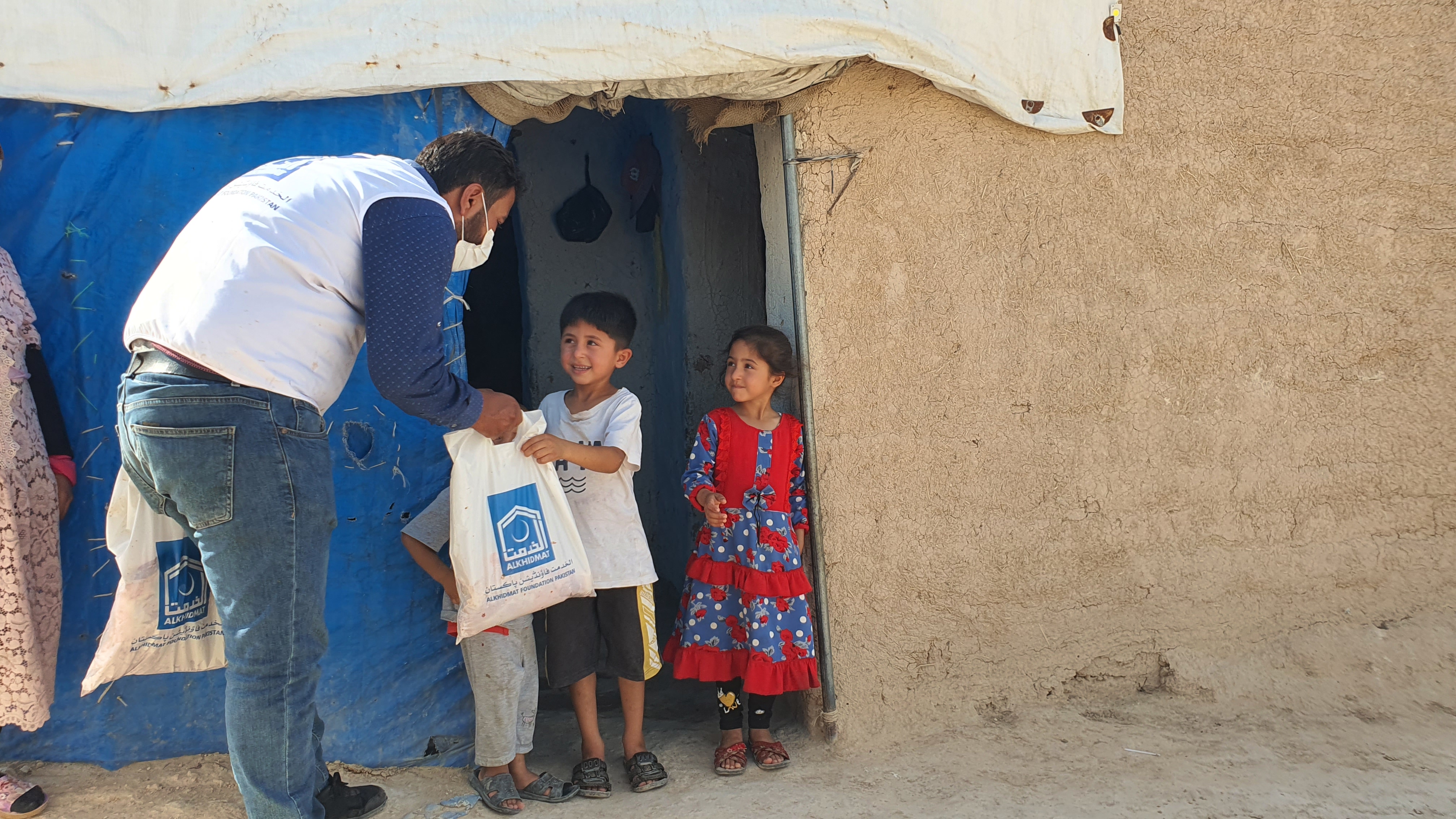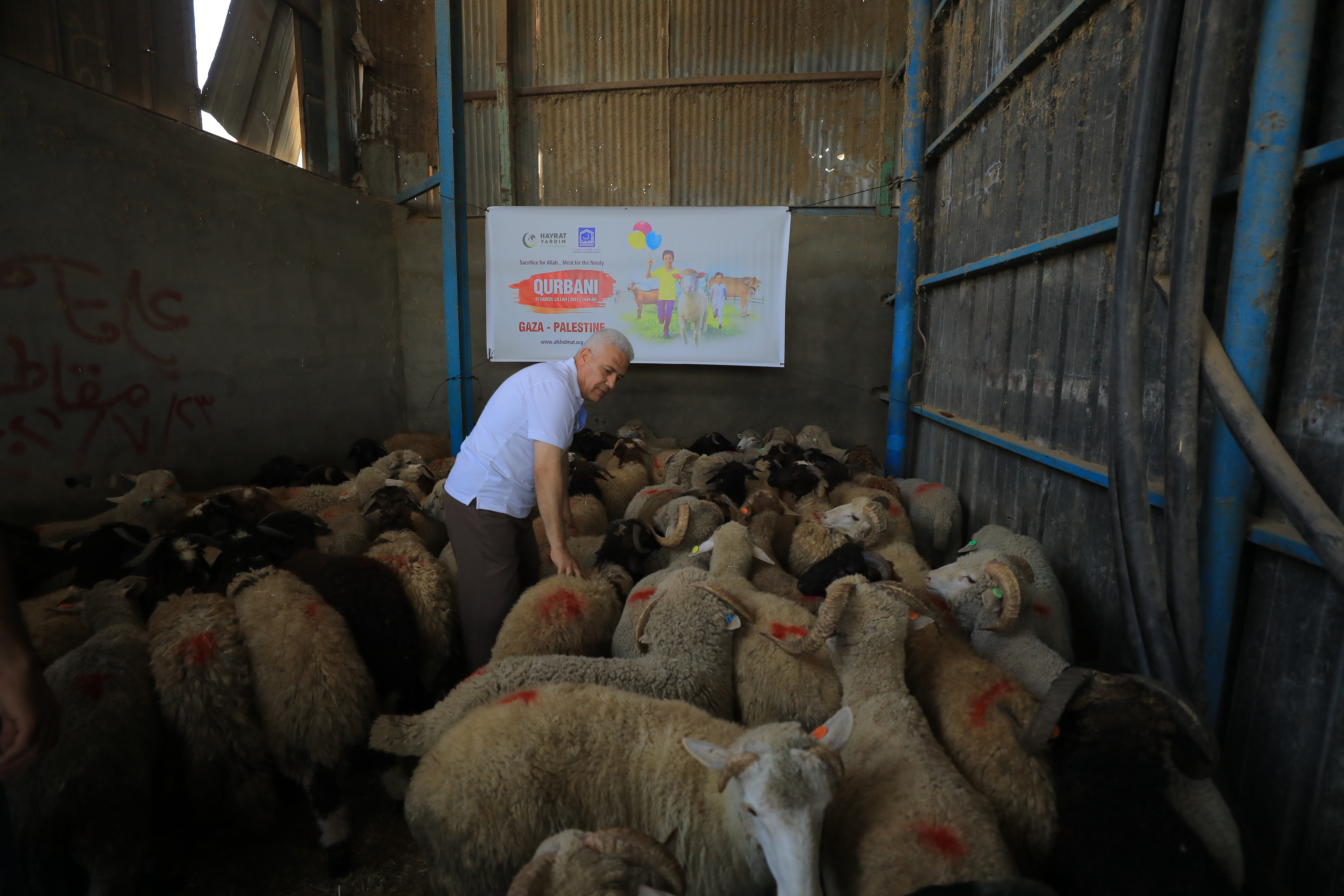- Dr. Azalfa Malik
- May 28, 2025
- Updated about
Qurbani, its Origin and Impact
As the Islamic year draws to a close, the 12th month of Dhul Hijjah brings with it one of the most sacred times in the Islamic calendar. This month is marked by two major events: Qurbani and Eid al-Adha, also known as the "greater Eid." For three days, families and friends come together to celebrate, pray, exchange gifts, and feast, much like the festivities of Eid al-Fitr. While Eid al-Fitr marks the end of Ramadan, Eid al-Adha celebrates the completion of the religious duty of Qurbani, an act of sacrifice. Though the specifics of this obligation may differ among various schools of thought, Qurbani is generally considered a mandatory duty (Fardh) for every adult Muslim with the means to fulfill it.
Where did it all begin?
The first known sacrifice:
Allah tells us in the Qur’an the story of two sons of Prophet Adam (as), Habil and Qabil. To resolve a difference between them, Adam (as) asked them both to make a sacrifice; whoever’s sacrifice was accepted would be the clear winner. Since Habil was a shepherd, he offered a ram to be sacrificed. Qabil tilled the land, so he offered some produce grown from the land. It is understood that Habil took care to select the best animal, one which was healthy and well-fed, whereas Qabil wasn’t willing to offer the best of his produce. Allah accepted Habil’s sacrifice, ascending it to heaven, and He rejected Qabil’s sacrifice. Habil explained to his brother that Allah only accepts from those who have taqwa. Qabil had clearly not made his sacrifice with sincerity, and Allah was aware of that. However, Qabil was jealous of the way Habil had been favored over him and he killed his brother.
Ibrahim and Ismail’s Sacrifice
The Prophet Ibrahim (as) saw a dream repeatedly, where he was being asked by Allah (SWT) to sacrifice his son Ismail (as). This was a test of love and submission towards Allah. He surrendered to Allah’s (SWT) command without hesitating and prepared himself and his son for sacrifice. It is said that Prophet Ibrahim (as) took his son to Mount Arafat to perform the sacrifice. He described his dream to his son upon reaching the mountain, to which his son obliged and echoed the same beliefs that this was an act of obedience towards Allah (SWT).
‘He (Ismail) said, “O my father! Do as you are commanded. If Allah wills, you shall find me of the patient”’. (Qur’an, 37:102
However, as he tied his son with a rope and was about to slaughter him, Allah (SWT) replaced Ismail (AS) with a ram. Ibrahim (as) sacrificed a white, horned ram instead of his son and, like the stoning of the pillars, we remember this sacrifice every year at Hajj. It represents the devotion of Ibrahim (as), who was ready to sacrifice his beloved son for Allah’s sake, and the reward and blessing they received from Allah as a result of their submission.
Prophetic Qurbani and its Sunnah:
This is the Qurbani we still practice today every Eid al-Adha and it is important for us to not only make our intentions sincere, but also to keep in mind the rich history behind Qurbani. Our heritage should be valuable to us, as shown by the Prophet Muhammad (saw) who kept the horns of the ram Ibrahim (as) hanging in the Ka’bah. The family of Ibrahim (as) are a particularly important part of our Muslim history, as we learn every year at Hajj when we commemorate their actions.
The Messenger of Allah (saw) even said, ‘I am the son of two sacrificed people’ (Hakim), referring to the fact that both his father Abdullah and his ancestor Ismail (as) were almost sacrificed for Allah’s sake, emphasizing his connection with Ismail (as).
What is the impact of it all?
Remembering this journey every time we do Qurbani should bring us closer to Allah; again, it is not the animal that matters, but our willingness to submit wholeheartedly to Allah.
The significance of Qurbani in Islam holds great value and is an act of devotion towards Allah (SWT). It allows Muslims to strengthen their faith and follow in the footsteps of Prophet Ibrahim (AS). The significance of Qurbani lies in the remembrance of Ibrahim’s devotion to Allah (SWT). Muslims should reflect on any sacrifices they have made in Dhul Hijjah for the sake of God. However, Qurbani isn’t only significant because of this, it is also an act of giving to others in their time of need. Traditionally, an animal that is slaughtered for Qurbani is divided into three shares: one share for the donor and their family, one share for the donor’s friends, and one share for someone in need.
The story of Habil and Qabil illustrates that sincerity and purity of intention are the most important part of the Qurbani. Part of this is selecting a worthy sacrifice as Habil did and to ensure it is well-treated and sacrificed in an Islamic way. It is also about understanding that, like Zakat, Qurbani isn’t just an annual task or tax that we should tick off a to-do list; it is a deeply spiritual activity and a chance to draw closer to Allah.
Qurbani is not simply the slaughtering of an animal and the distribution of its meat, and it is more than a commemorative ritual. Through Qurbani, we reaffirm what we sometimes forget in the hustle and bustle of everyday life – that we completely submit to Allah, and we are willing to sacrifice whatever is asked of us to be close to Him and gain His pleasure, just as Prophet Ibrahim (as) did so many years ago.
An element of The Prophetic Qurbani which we should definitely be keeping alive is the practice of sacrificing a second animal on behalf of those who can’t afford it: ‘The Prophet (saw) sacrificed for the one who could not sacrifice from his ummah, one who bore witness to the Oneness of Allah and [his] Prophethood’. (Tabarani and Ahmad) This was a Sunnah his Sahabah also used to follow, as Anas bin Malik said, ‘The Prophet (saw) used to sacrifice two rams, and I also sacrifice two rams’. (Bukhari)
This Dhul-Hijjah, why not revive this beautiful Sunnah and give an extra Qurbani? There is wisdom in everything the Prophet (saw) did and immense reward in reviving his Sunnah. Furthermore, giving an extra Qurbani means even more families in need will benefit. In poverty-stricken communities, meat is an unaffordable luxury and so it is a joyous occasion when they can enjoy the generosity of a Prophetic Qurbani. So not only will you be doubling your reward by giving a Prophetic Qurbani, you will also be doubling your impact.
It’s also a means of gaining empathy for those less fortunate across the world, and ensuring that they can celebrate Eid without worrying about how to feed their children. For many vulnerable communities, Eid-ul Adha is the only time they can eat meat in the whole year.
How to sacrifice with Alkhidmat this year?
It can be difficult to know who needs to give Qurbani, but it’s vital to understand to fulfil your religious obligation. The eligibility for Qurbani is very similar to the rules of Zakat. Every sane adult Muslim who possesses wealth beyond their means should carry out the act of Qurbani. Typically, if a Muslim is eligible to give Zakat, they are also expected to do Qurbani. This means that usually everyone should perform Qurbani (besides those who are exempt) and they must do so in adherence to the rules of Qurbani.
As time has gone on and Muslims have spread far and wide across the globe, it is not always possible for them to sacrifice an animal in the name of Qurbani, nor might it be possible for them to be present at the time of slaughter. In such instances, it is common for Muslims to give to charity in Islam. They can give their sacrificial donation to a charity like Alkhidmat Foundation Pakistan which allows you to donate to people in need locally as well as the main Pakistani relief organization that conducts Qurbani for Muslims in Gaza. We use your Qurbani donation to purchase an animal and sacrifice it in your name to please Allah (SWT). The meat is then given to those most in need in Pakistan and also to our brothers and sisters in Palestine and other locations worldwide if you choose to, so that they may enjoy the Eid al-Adha celebrations with their brothers and sisters around the world.

Where does your Qurbani go?
Our teams on the ground in Pakistan, Palestine, Egypt, Jordan and Lebanon worked to ensure each sacrifice was completed according to Islamic guidelines. Together with your efforts and benevolent donations, we have organized Qurbani for not only our Pakistani brethren but also for the refugees in Cairo, Amman, Lebanon, Al-Quds, Gaza and the West Bank. The sacrifice was Shariah-compliant, meat was delivered fresh and always with care and dignity. From refugee camps to flood-hit villages, your Qurbani reached families who had no means to celebrate Eid.
Because of your generosity 1.9 million beneficiaries received fresh, halal meat during Eid. That means over 5,000 cows/ bulls and over 2,800 goats/ sheep; over 310,000 meat packs made their way into homes where Eid felt complete, where the joy of the celebration was shared not just in spirit, but around the dinner table. In communities facing poverty, crisis, and displacement, your Qurbani became a moment of relief and hope.
For many families, this was their only chance all year to enjoy a nutritious meat-based meal. Your sacrifice meant they didn’t have to go without on one of the most sacred days of the year. You gave them more than food. You gave them the feeling of being seen, remembered, and valued.
Find out more about Alkhidmat Foundation and Qurbani at www.alkhidmat.org/qurbani
Bio.
show more


It is a long established fact that a reader will be distracted by the readable content of a page when looking at its layout.
It is a long established fact that a reader will be distracted by the readable content of a page when looking at its layout.